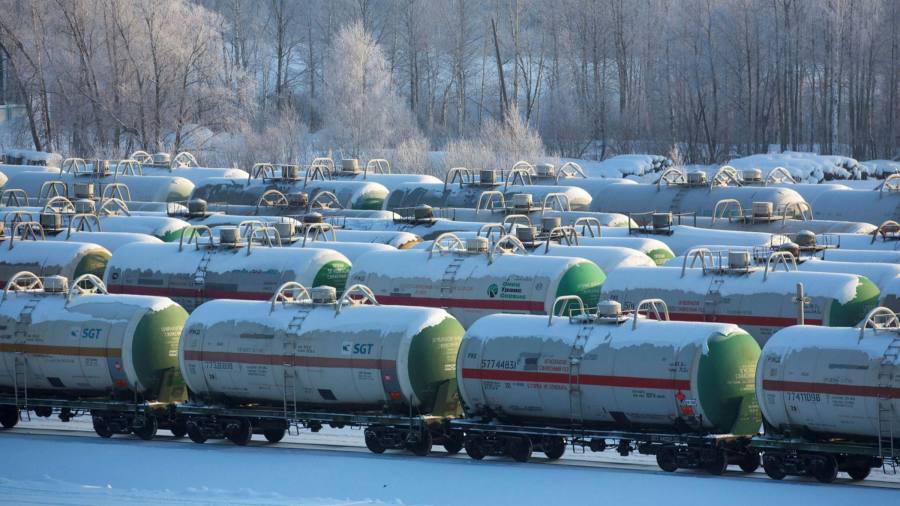[ad_1]
Russia’s largest petrochemical company Sibur is unlikely to launch its long-mooted IPO in the next two years, its new finance head has said, as the company instead focuses on ramping up overseas shipments to meet its rising production capacity.
Sibur began talks with banks over a public offering in 2018 but suspended the process amid rising investor unease over Russian equities because of souring relations with western countries. Sentiment recovered last year, prompting four big Russian companies to list in the last quarter of 2020.
But the company, which is halfway through a $19bn expansion push to open two new production sites that will roughly treble its pre-2020 polymer output, will instead focus on ramping up its exports to China and other Asian markets, chief financial officer Peter O’Brien told the Financial Times.
“There is nothing to announce now,†he said. “I think it is fair to say that it is definitely an option and [shareholders] will continue to evaluate it, but there is no plan at the present time to do it.â€
O’Brien’s appointment in September raised speculation that a listing could be imminent. As a banker at Morgan Stanley in 2005, he helped float Novatek, a gas producer owned by Leonid Mikhelson, Sibur’s majority shareholder, and a year later led the $10.4bn listing of Kremlin-controlled oil producer Rosneft as the company’s CFO.
“Was I hired explicitly to get an IPO done? No, definitely not . . . The primary focus is to get the most out of the portfolio we have now,†he said, adding that a listing was more likely to happen nearer to the opening of a $10bn production plant under construction in Amur, on the Chinese border in Russia’s far east.
“Maybe doing something nearer to when Amur is going to come on stream and you can get value from the market for that . . . that might be enough to make the shareholders feel like maybe it makes sense to do it,†he said.
The Amur plant, which is set to be the world’s largest basic polymer production factory when completed in 2024, is being built by a joint venture 60 per cent controlled by Sibur and 40 per cent by Chinese oil and gas group Sinopec. That follows the opening last year of ZapSibNeftekhim, a $9bn plant in Siberia which is now close to full production.
Sibur is 10 per cent owned by Sinopec and another 10 per cent is held by China’s state-controlled Silk Road Fund, making the Russian company one of the primary corporate examples of Beijing and Moscow’s deeper co-operation over the past decade.
O’Brien said the slump in demand at the start of the coronavirus pandemic had eased, and that exports would drive future growth, helped by a rebound in Chinese activity that has outstripped other major economies.
“Last July we were saying holy smokes, there’s all this new capacity coming online and nobody is buying anything,†he said. “But now the new capacity doesn’t look too scary because of the return of demand we see today.â€
Sibur on Thursday reported an 81.9 per cent fall in net profit last year compared with 2019 as a devaluation of the rouble pushed up costs on its debt, of which 86.7 per cent is denominated in dollars and euros. The company said that net of forex movements, net profit fell just 2.2 per cent compared with the previous year.
In its core plastics and olefins divisions, which account for the majority of revenues, exports last year rose 42 per cent, against a 5 per cent rise in domestic sales. Exports now account for 46 per cent of revenues in those segments and will soon overtake domestic sales on current trends.
“It’s not like [Sibur] wants to be an export-oriented company but that is where our product can compete,†O’Brien said. “Growth in Russia won’t allow us to grow very fast at its current pace.â€
“When production comes out of ZapSib . . . we can decide whether to send it left or right, to Europe or to Asian markets,†he added. “Amur is definitely export-focused given where it is located and the proximity to primarily China but [also] other south-east Asian markets.â€
[ad_2]
Source link





